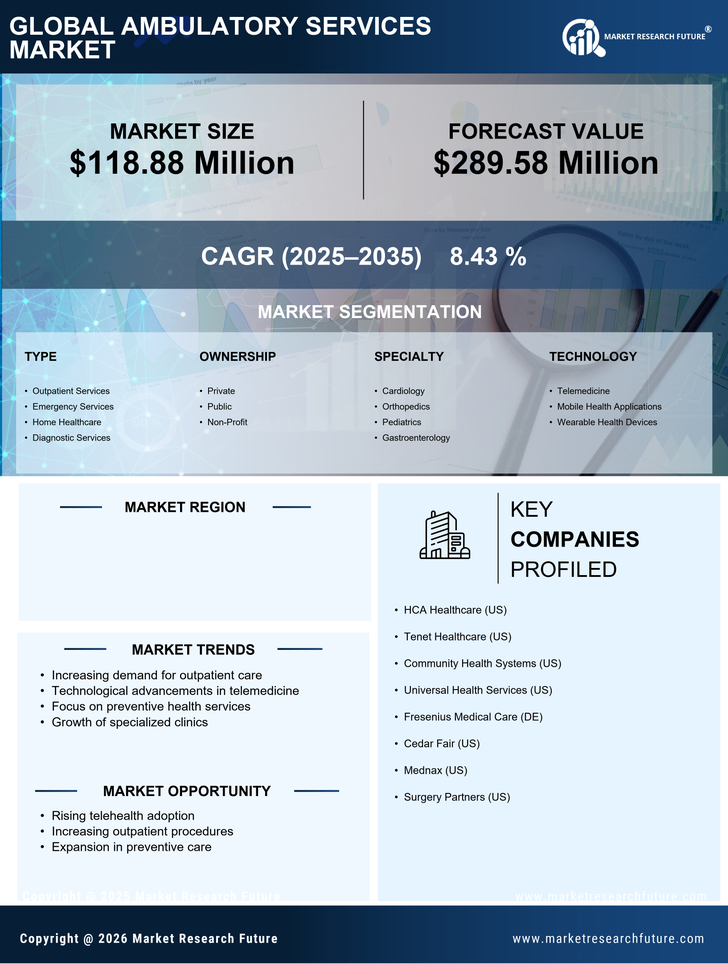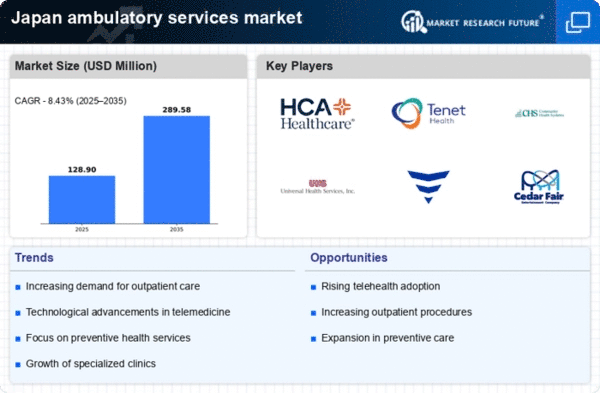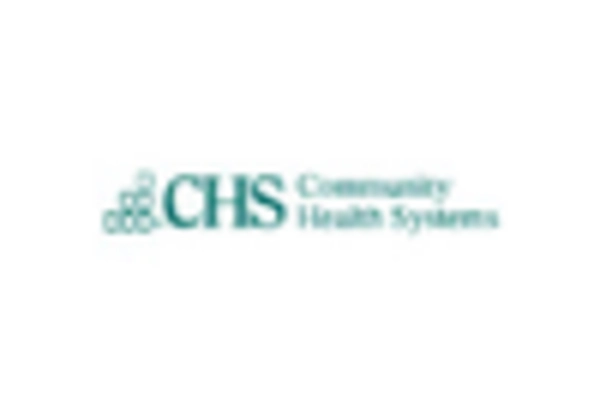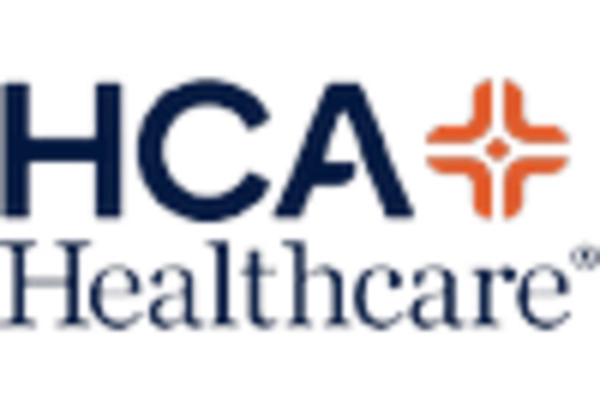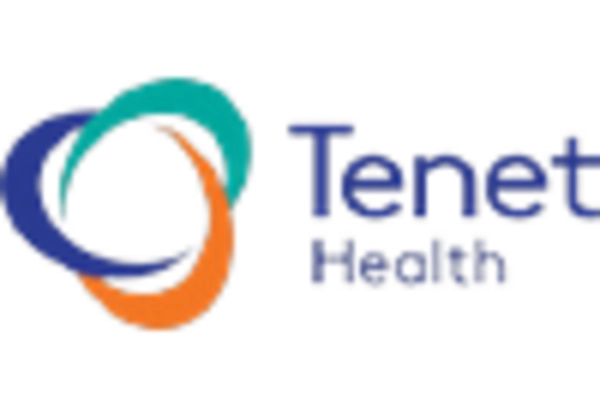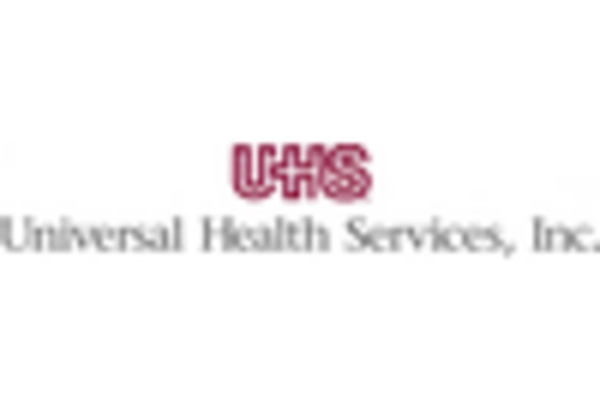Rising Healthcare Costs
Healthcare costs in Japan have been on the rise, prompting a shift towards more cost-effective solutions such as ambulatory services. The ambulatory services market is increasingly seen as a viable alternative to traditional inpatient care, which is often more expensive. In recent years, the average cost of hospitalization has surged, leading both patients and providers to seek outpatient options that can deliver quality care at a lower price point. This trend is likely to continue, as the government and private insurers encourage the use of ambulatory services to manage healthcare expenditures. By focusing on outpatient care, the ambulatory services market can potentially alleviate some of the financial pressures faced by the healthcare system.
Aging Population Dynamics
The aging population in Japan is a critical driver for the ambulatory services market. As the demographic shifts towards an older age group, the demand for outpatient services is likely to increase. In 2025, it is projected that over 30% of the population will be aged 65 and above. This demographic trend necessitates a greater focus on managing chronic conditions and preventive care, which ambulatory services are well-positioned to provide. The ambulatory services market is expected to expand as healthcare providers adapt to the needs of this aging cohort, offering tailored services that enhance accessibility and convenience. Furthermore, the integration of technology in these services may improve patient outcomes and satisfaction, thereby driving market growth.
Government Initiatives and Funding
Government initiatives aimed at improving healthcare access and quality are driving the ambulatory services market in Japan. Recent policies have focused on enhancing outpatient care facilities and increasing funding for preventive services. The government has recognized the importance of ambulatory care in managing the healthcare needs of the population, particularly the elderly. By allocating resources to develop and expand ambulatory services, the government is likely to stimulate market growth. Additionally, these initiatives may include incentives for healthcare providers to adopt innovative practices that enhance service delivery. As a result, the ambulatory services market is expected to thrive in an environment that supports and promotes outpatient care.
Shift Towards Patient-Centric Care
The shift towards patient-centric care is reshaping the ambulatory services market in Japan. Patients are increasingly seeking healthcare options that prioritize their preferences and needs, leading to a demand for more personalized services. This trend is prompting healthcare providers to adopt a more holistic approach, focusing on the overall patient experience rather than just clinical outcomes. Ambulatory services are well-suited to meet these evolving expectations, offering flexible scheduling, shorter wait times, and tailored treatment plans. As the healthcare landscape continues to evolve, the ambulatory services market is likely to expand in response to the growing emphasis on patient satisfaction and engagement.
Technological Advancements in Healthcare
Technological advancements are significantly influencing the ambulatory services market in Japan. Innovations such as telemedicine, electronic health records, and mobile health applications are transforming how healthcare is delivered. These technologies enhance patient engagement and streamline operations, making ambulatory services more efficient and accessible. For instance, telehealth services have seen a notable increase in adoption, allowing patients to receive care from the comfort of their homes. This shift not only improves patient satisfaction but also expands the reach of healthcare providers. As technology continues to evolve, the ambulatory services market is likely to benefit from improved service delivery and operational efficiencies, ultimately leading to better health outcomes.
